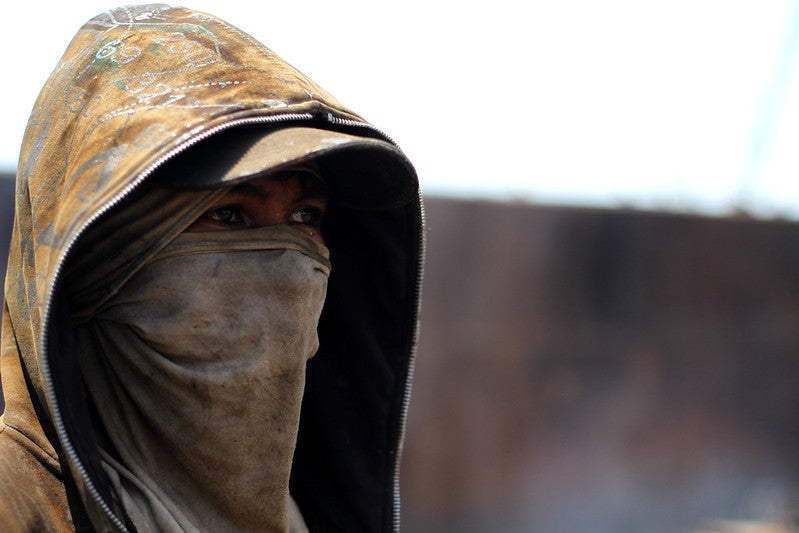Indonesians Wield the Power of the Law to Clean Up Jakarta’s Deadly Air
A successful citizen suit finds government officials guilty of environmental negligence.
Environmental advocates in Indonesia are celebrating a historic milestone for cleaner air in the capital of Jakarta, where air pollution threatens the health of more than 30 million residents of the megapolitan area. The Central District Court in Jakarta has ordered President Joko Widodo and other central government senior government officials, as well as the Governor of Jakarta and neighboring provinces, to improve the city’s hazardous air quality.
In Indonesia, our partners at the Indonesian Center for Environmental Law and the Jakarta Legal Aid Foundation have been working with Jakarta citizens who are fighting for clean air in their city. The judges held that the government has been negligent in fulfilling its duties under Indonesia’s environmental protection laws.
This year, Jakartans have experienced air quality that is considered “good” about 25% of the time.
A 2020 World Air Quality report ranked Jakarta as the capital city with the ninth-highest level of ambient particulate matter (PM2.5), an especially harmful pollutant for human health. For people with conditions like asthma or heart disease, air pollution has been at unhealthy levels for over 130 days in 2021, nearly twice as often as it has been safe. The air contains toxic pollutants from transportation and coal-fired power plants, which still provide the primary source of energy in the country.
This decision resulted from a rare citizen lawsuit filed against the government in 2019 by 32 plaintiffs, some of whom experience health issues like asthma and skin problems from breathing Jakarta’s polluted air.
Many studies show the negative health impacts of long-term exposure to Jakarta’s dirty air, which already causes 3,700 premature deaths a year, and could reach 22,100 deaths a year by 2050, according to a study published in Nature. Air pollution currently cuts over two years off Jakartans’ average life expectancy.
The ruling mandates the president to establish national air quality standards to protect human health, and the health minister and Jakarta governor to devise strategies to control air pollution. It also calls for other measures like an analysis of emissions from provinces neighboring Jakarta, where the coal-fired power plants are located, and for older vehicles to be periodically tested for emissions.
Smog and haze hang over Jakarta.
Aaron Minnick | World Resources Institute / CC BY-NC-SA 2.0)
While this isn’t the first ruling compelling the Indonesian government to improve air quality and protect people’s health, it’s the first time such a ruling applies to urban air pollution.
It’s also the first time air quality management instruments, such as an emission inventory and an air strategy action plan, were included in a ruling, and the first time transboundary (interprovincial) pollution is addressed.
Along with the plaintiffs and a wider coalition, our partners are now working to ensure the government complies with the ruling. The plaintiffs have expressed their willingness to participate in the formulation of air quality action plans, as well as other policies and actions the government must carry out to ensure clean, safe air for Jakartans.
Upon hearing the verdict, plaintiff Khalisah Khalid expressed relief and renewed hope that the courts can be a viable way for citizens to seek justice.
“We as the plaintiffs, as well as citizens, will oversee the policy changes mandated by the court against the seven defendants,” says Khalid.
However, because the central level government decided to file an appeal, the court orders are only readily enforceable for Jakarta. Ayu Eza Tiara, the plaintiffs’ legal representative, expressed concern that the appeal could delay efforts to improve Jakarta’s air quality.;
“Although the Governor of Jakarta decided not to appeal and therefore agreed to implement the court order — but without the efforts of the central government, who is the key player in improving the mechanism of supervision and coordination with local governments in the three provinces — the implementation in the area will not go well,” says Ayu.
Earthjustice will continue to support our partners in Indonesia as they push their government to put this plan into action.
The International Program partners with organizations and communities around the world to establish, strengthen, and enforce national and international legal protections for the environment and public health.
Earthjustice Media Relations Team
media@earthjustice.org
